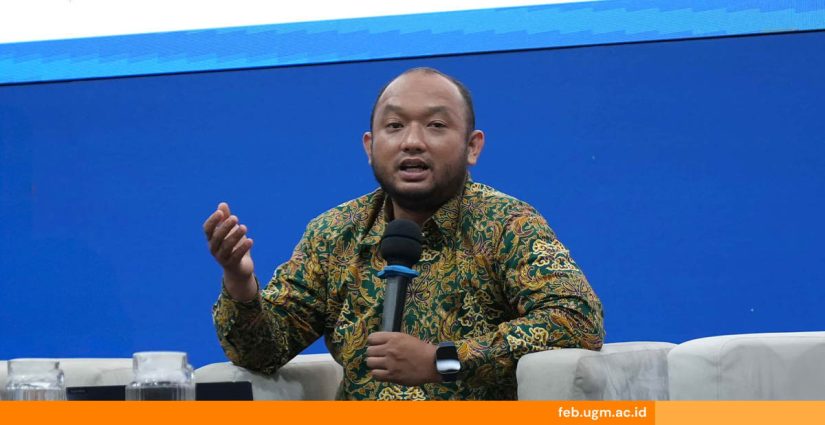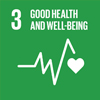
Consumption of packaged sweetened beverages (MBDK) is not only a threat to health but also an economic burden on the country. From the risk of obesity to the surge in healthcare costs, the impact is widespread and burdens the state budget.
Lecturer at the Economics Study Programme, Faculty of Economics and Business, UGM, Novat Pugo Sambodo, S.E., MIDEC., revealed that although sweetened beverages can be released to the market without government intervention, the risks are far greater than imagined. MBDK has the potential to trigger obesity and other non-communicable diseases, such as hypertension and diabetes. This situation will lead to increased costs in the healthcare sector through the National Health Insurance (BPJS).
“Overall, it will disrupt the healthcare system and burden overall healthcare costs,” he explained during the CISDI Goes to Campus (CGTC) 2025 talk show held on Tuesday (23/09/2025) at the FEB Learning Building.
He mentioned that the government needs to take immediate, concrete steps to avoid losing momentum. Pugo cited the case of the delay in implementing the MBDK excise policy in Indonesia, which missed the opportunity for more effective adjustments.
“Every delay has more complex consequences, because policies must continue to adjust to the latest conditions,” he explained.
Pugo added that from a revenue perspective, cigarette excise is actually not beneficial to the state because the burden caused by MBDK consumption is much greater. The main objective of MDK excise is not to increase state revenue, but to protect public health.
To increase public trust, Pugo proposed that revenue from MBDK excise be explicitly allocated. For example, to reduce the burden of health financing through premium payments, health infrastructure development, or promoting healthy lifestyles.
Pugo emphasised that policy should not stop at the regulatory level, but should understand the real conditions on the ground. That way, existing policies are expected to be on target.
“We need to understand the issues they face in the field so that we can formulate sustainabl policies, because the impact of this tax deferral is not only short-term but also long-term,” he said.
Reportage by: Najwah Ariella Puteri
Editor: Kurnia Ekaptiningrum
Sustainable Development Goals









